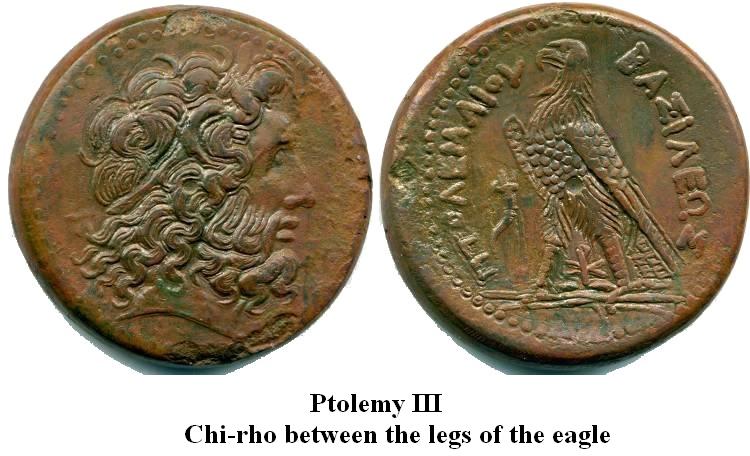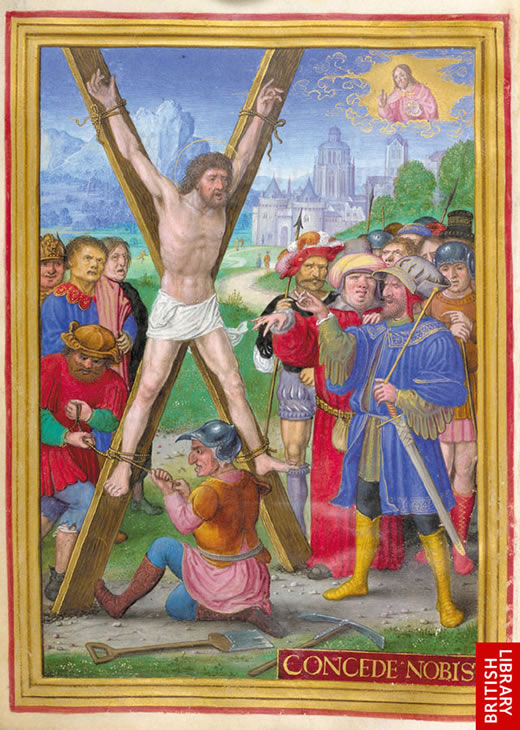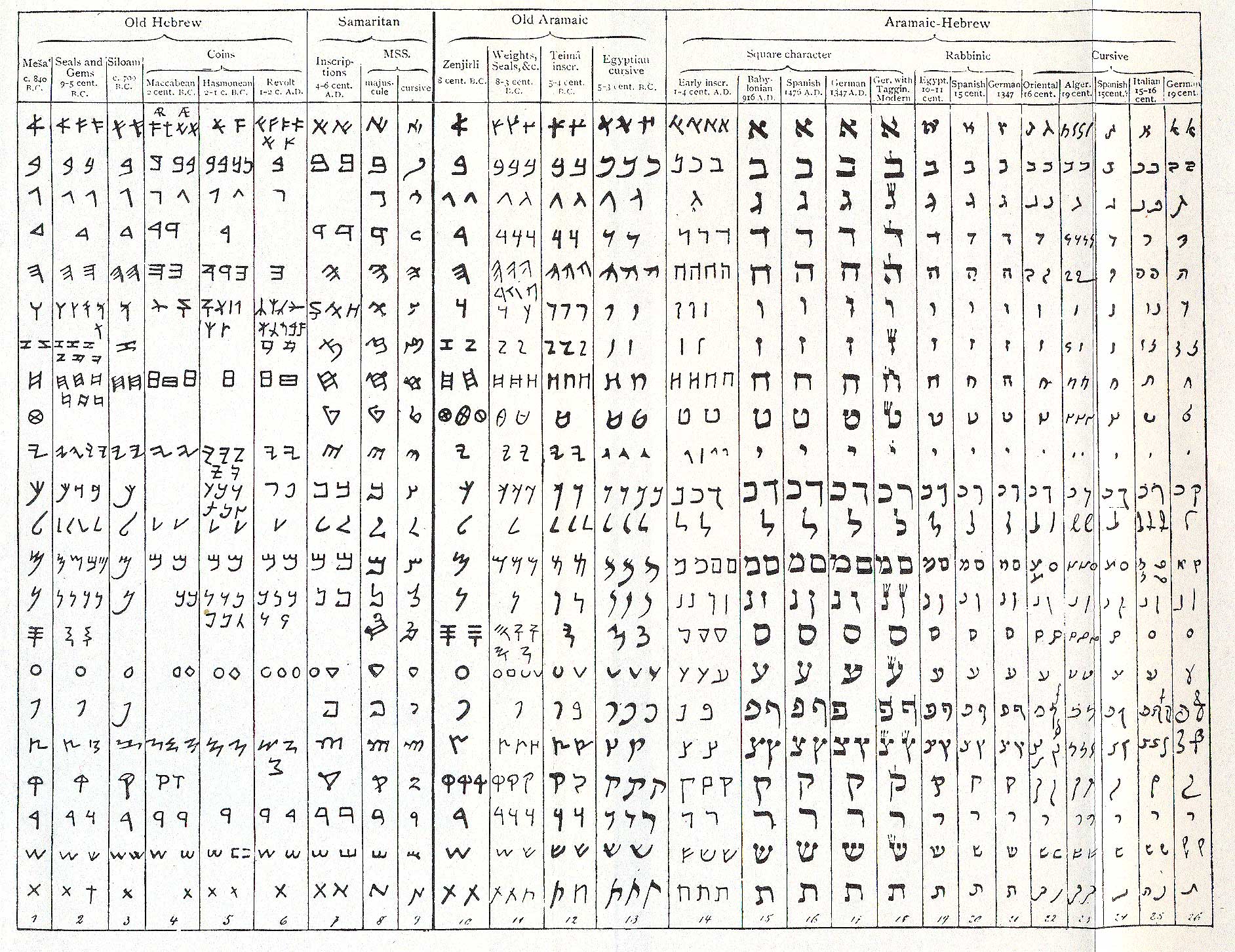
 |
Freethought & Rationalism ArchiveThe archives are read only. |
|
|
#11 |
|
Veteran Member
Join Date: Jun 2010
Location: seattle, wa
Posts: 9,337
|
Words related to chresimos in Clement's Stromata.
1. Accordingly, before the advent of the Lord, philosophy was necessary to the Greeks for righteousness. And now it becomes conducive to piety; being a kind of preparatory training to those who attain to faith through demonstration. "For thy foot," it is said, "will not stumble, if thou refer what is good (χρησίμη), whether belonging to the Greeks or to us, to Providence." [Prov. 3.23] (Strom 1.5) 2. Wherefore also, when Sarah was jealous at Hagar being preferred to her, Abraham, as choosing only what was profitable (τὸ χρήσιμον) in secular philosophy, said, "Behold, thy maid is in thine hands: deal with her as it pleases thee;" manifestly meaning, "I embrace secular culture as youthful, and a handmaid; but thy knowledge I honour and reverence as true wife." [ibid] 3. And here we are aided (χρησιμεύει) by the parable of the sower, which the Lord interpreted. For the husbandman of the soil which is among men is one; He who from the beginning, from the foundation of the world, sowed nutritious seeds; He who in each age rained down the Lord, the Word. But the times and places which received [such gifts], created the differences which exist. 4. So also here, I call him truly learned who brings everything to bear on the truth; so that, from geometry, and music, and grammar, and philosophy itself, culling what is useful (χρήσιμον), he guards the faith against assault ... And our much-knowing gnostic can distinguish sophistry from philosophy, the art of decoration from gymnastics, cookery from physic, and rhetoric from dialectics, and the other sects which are according to the barbarian philosophy, from the truth itself. And how necessary is it for him who desires to be partaker of the power of God, to treat of intellectual subjects by philosophising! And how serviceable (χρήσιμον) is it to distinguish expressions (φωνὰς) which are ambiguous (ἀμφιβόλου), and which in the Testaments are used synonymously! (1.9) 5. It suffices the gnostic if only one hearer is found for him. You may hear therefore Pindar the Boeotian, who writes, "Divulge not before all the ancient speech. The way of silence is sometimes the surest. And the mightiest word is a spur to the fight." Accordingly, the blessed apostle very appropriately and urgently exhorts us "not to strive about words to no profit (χρήσιμον), but to the subverting of the hearers, but to shun profane and vain babblings, for they increase unto more ungodliness, and their word will eat as doth a canker." (1.10) 6. There is then in philosophy, though stolen as the fire by Prometheus, a slender spark, capable (χρησίμως) of being fanned into flame, a trace of wisdom and an impulse from God. Well, be it so that "the thieves and robbers" are the philosophers among the Greeks, who from the Hebrew prophets before the coming of the Lord received fragments of the truth, not with full knowledge, and claimed these as their own teachings, disguising some points, treating others sophistically by their ingenuity, and discovering other things, for perchance they had "the spirit of perception." (1.17) 7. The strategy of Moses, therefore, shows the necessity of discerning what will be of service (χρήσιμα) before the approach of dangers, and so to encounter them. (1.24) 8. Whatever the explication necessary on the point in hand shall demand, shall be embraced, and especially what is occult in the barbarian philosophy, the department of symbol and enigma; which those who have subjected the teaching of the ancients to systematic philosophic study have affected, as being in the highest degree serviceable (χρησιμώτατον), nay, absolutely necessary to the knowledge of truth. (2.1) 9. "Be not elated on account of thy wisdom," say the Proverbs. "In all thy ways acknowledge her, that she may direct thy ways, and that thy foot may not stumble." By these remarks he means to show that our deeds ought to be conformable to reason, and to manifest further that we ought to select and possess what is useful (χρήσιμον) out of all child-rearing (παιδείας). Now the ways of wisdom are various that lead right to the way of truth. Faith is the way. "Thy foot shall not stumble" is said with reference to some who seem to oppose the one divine administration of Providence. Whence it is added, "Be not wise in thine own eyes," according to the impious ideas which revolt against the administration of God. "But fear God," who alone is powerful. Whence it follows as a consequence that we are not to oppose God. (2.2) 10. The comic poet then, Menander, while running down marriage, and yet alleging on the other side its advantages (τὰ χρήσιμα ἀντιτιθεὶς), replies to one who had said: "I am averse to the thing, For you take it awkwardly." (2.23) 11. But the Saviour himself, whom alone they think one should obey, has forbidden hatred and reviling and says: "When you go with your adversary to court, try to achieve a friendly reconciliation with him." Accordingly, they will either refuse to accept Christ's exhortation, in that they are in opposition to the adversary, or they will become his friends and cease to oppose him. What then? Do you not realize, my worthy friends (I speak as if you were present with me) that by conflict with these excellent commandments you fight against your own salvation? You overturn yourselves, not these beneficial (χρησίμωs) instructions. (3.4) 12. (against Basilides) But if martyrdom be retribution by way of punishment, then also faith and doctrine, on account of which martyrdom comes, are co-operators in punishment -- than which, what other absurdity could be greater? But with reference to these dogmas, whether the soul is changed to another body, also of the devil, at the proper time mention will be made. But at present, to what has been already said, let us add the following: Where any more is faith in the retribution of sins committed before martyrdom takes place? And where is love to God, which is persecuted and endures for the truth? And where is the praise of him who has confessed, or the censure of him who has denied? And for what use is right conduct ( χρησίμη ἡ πολιτεία ἡ ὀρθή), the mortification of the lusts, and the hating of no creature? (4.12) 13. Whence the Hellenic philosophy is like the torch of wick which men kindle, artificially stealing the light from the sun. But on the proclamation of the Word all that holy light shone forth. Then in houses by night the stolen light is useful (χρησιμεύει); but by day the fire blazes, and all the night is illuminated by such a sun of intellectual light. (5.4) 14. "The use (Χρησιμώτατον) of symbolical speech is characteristic of the wise man," appositely remarks the grammarian Didymus, "and the explanation of what is signified by it." (5.8) 15. And also Cleanthes, the Stoic, who writes thus in a poem on the Deity: - "If you ask what is the nature of the good, listen- That which is regular, just, holy, pious, Self-governing, useful (χρήσιμον), fair, fitting, Grave, independent, always beneficial, That feels no fear or grief, profitable, painless, Helpful, pleasant, safe, friendly, Held in esteem, agreeing with itself: honourable, Humble, careful, meek, zealous, Perennial, blameless, ever-during." (5.14) 16. Menander, the comic poet, writes in these very words: "If one by offering sacrifice, a crowd Of bulls or kids, O Pamphilus, by Zeus. Or such like things; by making works of art, Garments of gold or purple, images Of ivory or emerald, deems by these God can be made propitious, he does err, And has an empty mind. For the man must prove a man of worth (τὸν ἄνδρα χρήσιμον), who neither maids deflowers, Nor an adulterer is, nor steals, nor kills For love of worldly wealth, O Pamphilus. Nay, covet not a needle's thread. For God Thee sees, being near beside thee." (5.14) 17. And you will find that, Theognis having said: "For no advantage (χρήσιμόν) to a man grown old A young wife is, who will not, as a ship The helm, obey," (6.2) 18. And he must be acquainted with what are called hieroglyphics, and know about cosmography and geography, the position of the sun and moon, and about the five planets; also the description of Egypt, and the chart of the Nile; and the description of the equipment of the priests and of the places consecrated to them, and about the measures and the things in use (χρησίμων) in the sacred rites. (6.4) 19. But he who culls what is useful for the advantage of the catechumens, and especially when they are Greeks (and the earth is the Lord's, and the fulness thereof ), must not abstain from erudition, like irrational animals; but he must collect as many aids as possible for his hearers. But he must by no means linger over these studies, except solely for the advantage (χρήσιμον) accruing from them; so that, on grasping and obtaining this, he may be able to take his departure home to the true philosophy, which is a strong cable for the soul, providing security from everything. (6.11) 20. But for the benefit of one's neighbours, in the case of those who have proclivities for writing, and those who set themselves to deliver the word, both is other culture beneficial (τε ἄλλη παιδεία χρήσιμος), and the reading of the Scriptures of the Lord is necessary, in order to the demonstration of what is said, and especially if those who hear are accessions from Hellenic culture. (6.11) 21. And now the wisdom which we possess announces the four virtues in such a way as to show that the sources of them were communicated by the Hebrews to the Greeks. This may be learned from the following: "And if one loves justice, its toils are virtues. For temperance and prudence teach justice and fortitude; and than these there is nothing more useful (χρησιμώτερον) in life to men." Above all, this ought to be known, that by nature we are adapted for virtue; not so as to be possessed of it from our birth, but so as to be adapted for acquiring it. (6.11) 22. Accordingly, pain is found beneficial (χρήσιμος) in the healing art, and in discipline, and in punishment; and by it men's manners are corrected to their advantage. (7.3) 23. Whence Æsop said not badly, that "swine squeaked out very loudly, because, when they were dragged, they knew that they were good (χρησίμοι) for nothing but for sacrifice." (7.6) 24. And they say that the greatest increase is produced by swine's flesh. Wherefore it is beneficial to those who exercise the body (διὸ τοῖς μὲν ἀσκοῦσι τὸ σῶμα χρησιμεύει); but to those who devote themselves to the development of the soul it is not so, on account of the hebetude that results from the eating of flesh. Perchance also some Gnostic will abstain from the eating of flesh for the sake of training, and in order that the flesh may not grow wanton in amorousness. (ibid) 25. Now, if some assign definite hours for prayer -- as, for example, the third, and sixth, and ninth -- yet the Gnostic prays throughout his whole life, endeavouring by prayer to have fellowship with God. And, briefly, having reached to this, he leaves behind him all that is of no service (χρησιμεύει), as having now received the perfection of the man that acts by love. (7.7) 26. All the action, then, of a man possessed of knowledge is right action; and that done by a man not possessed of knowledge is: wrong action, though he observe a plan; since it is not from reflection that he acts bravely, nor does he direct his action in those things which proceed from virtue to virtue, to any useful (χρήσιμον) purpose. The same holds also with the other virtues. So too the analogy is preserved in religion. Our Gnostic, then, not only is such in reference to holiness; but corresponding to the piety of knowledge are the commands respecting the rest of the conduct of life. For it is our purpose at present to describe the life of the Gnostic, not to present the system of dogmas, which we shall afterwards explain at the fitting time, preserving the order of topics. (7.10) 27. But God does not punish, for punishment is retaliation for evil. He chastises, however, for good (χρήσιμον) to those who are chastised, collectively and individually. (7.16) My sense now, after having gone through Clement's use of the terminology, is that the chi-rho cross is a symbol of beneficence. While there is a range of meaning association with chresimon, the best choice to translate the original sense was that the sacrificial was 'beneficial' for mankind. I like this English word means both 'good' and 'useful.' |
|
|
|
|
#12 | ||
|
Veteran Member
Join Date: Jun 2010
Location: seattle, wa
Posts: 9,337
|
The Platonic use of chresimon:
Quote:
Quote:
|
||
|
|
|
|
#13 | ||
|
Veteran Member
Join Date: Sep 2004
Location: Birmingham UK
Posts: 4,876
|
Quote:
Quote:
|
||
|
|
|
|
#14 | |
|
Contributor
Join Date: Mar 2006
Location: Falls Creek, Oz.
Posts: 11,192
|
Some coins of Ptolemy III Euergetes (r. 246–222 BC) were marked with a Chi-Rho
 Quote:
If its Roman its late. |
|
|
|
|
|
#15 | |||
|
Veteran Member
Join Date: Jun 2010
Location: seattle, wa
Posts: 9,337
|
Quote:
The Acts of Andrew have Jesus and Andrew crucified in the shape of a chi:  Quote:
Quote:
|
|||
|
|
|
|
#16 |
|
Veteran Member
Join Date: Jun 2010
Location: seattle, wa
Posts: 9,337
|
it is well established in Jewish and Samaritan traditions that the symbol made of lambs blood at the Passover and the protective sign placed on Cain's head was a tav. It is connected with the Cross in Justin. The oldest tav's looked like Andrew's cross (bottom of the page):

|
|
|
|
|
#17 |
|
Veteran Member
Join Date: Jun 2010
Location: seattle, wa
Posts: 9,337
|
And the physiological discussion concerning the Son of God in the Timæus of Plato, where he says, He placed him crosswise in the universe, he borrowed in like manner from Moses; for in the writings of Moses it is related how at that time , when the Israelites went out of Egypt and were in the wilderness, they fell in with poisonous beasts, both vipers and asps , and every kind of serpent, which slew the people; and that Moses, by the inspiration and influence of God, took brass, and made it into the figure of a cross , and set it in the holy tabernacle , and said to the people, If you look to this figure, and believe, you shall be saved thereby. And when this was done, it is recorded that the serpents died, and it is handed down that the people thus escaped death. Which things Plato reading, and not accurately understanding, and not apprehending that it was the figure of the cross, but taking it to be a placing crosswise , he said that the power next to the first God was placed crosswise in the universe. And as to his speaking of a third, he did this because he read, as we said above, that which was spoken by Moses, that the Spirit of God moved over the waters. For he gives the second place to the Logos which is with God, who he said was placed crosswise in the universe; and the third place to the Spirit who was said to be borne upon the water, saying, And the third around the third. And hear how the Spirit of prophecy signified through Moses that there should be a conflagration. He spoke thus: Everlasting fire shall descend, and shall devour to the pit beneath (First Apology, Chapter 60).
|
|
|
|
|
#18 |
|
Veteran Member
Join Date: Jun 2010
Location: seattle, wa
Posts: 9,337
|
And when you really think about it Constantine's influence over Christianity is effectively refuted by the chi-rho. Many people make it seem Constantine was so powerful he “invented” a new symbol. This never made sense to me. Clearly the chresimon was a pre-existent cross
|
|
|
|
|
#19 |
|
Veteran Member
Join Date: Jun 2010
Location: seattle, wa
Posts: 9,337
|
And if Barnabas says that the cross was tau-like why couldn't the understanding have originated in association with the Hebrew/Aramaic tav. The Greeks thought their letters came from Aramaic via Cadmus:
Aramaic tav Samaritan tav: |
|
|
|
|
#20 |
|
Veteran Member
Join Date: Jun 2010
Location: seattle, wa
Posts: 9,337
|
Chrestos = 'gentleman' or 'nobleman' in ancient Athens:
http://books.google.com/books?id=iVs...esimos&f=false |
|
|
| Thread Tools | Search this Thread |
|